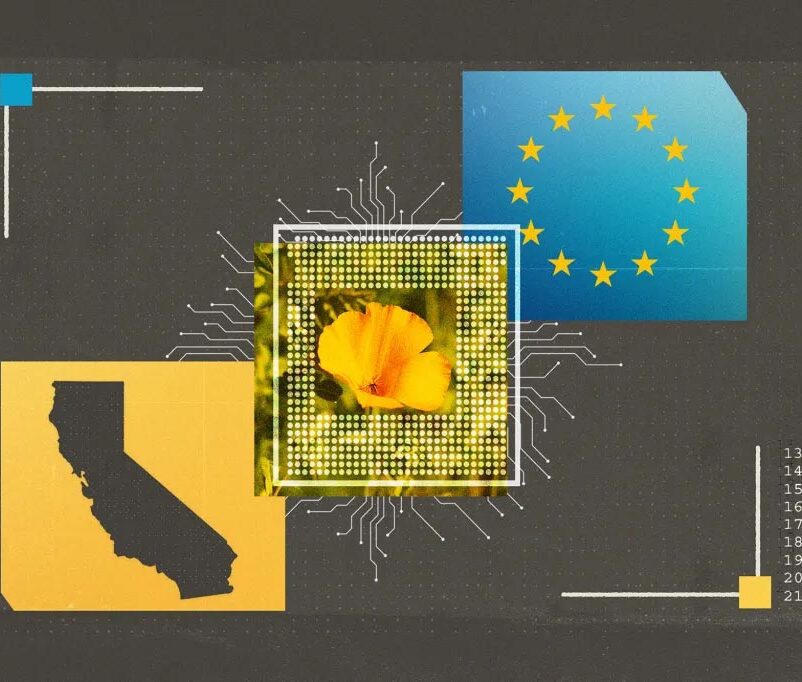

A wave of technological transformation has been reshaping the landscape of HR and recruitment, with the emergence of artificial intelligence (AI) promising efficiency, accuracy, and unbiased decision-making.
Amid the rapid adoption of AI technology by HR departments, a joint study conducted by NUS Business School, the International Institute for Management Development (IMD), and The Hong Kong Polytechnic University delved into a vital question: How do jobseekers perceive AI’s role in the selection and recruitment process? The study has been published in the Journal of Business Ethics.
Associate Professor Jayanth Narayanan from NUS Business School shared that the genesis of this subject emerged from a personal anecdote. “A close friend of mine who had been unwell was evaluated for a role using a video interviewing software,” said Professor Jayanth. The software provided feedback that the interviewee did not seem enthusiastic during the video interview.
Professor Jayanth expressed that such an outcome would likely not have transpired had a human interviewer been present. A human evaluator, endowed with perceptiveness, could have discerned signs of illness and conceivably asked about the candidate’s well-being. “A human interviewer may even conclude that if the candidate is sick and still making such a valiant effort, they deserve a positive evaluation,” he added.
Distrust of AI in providing a fair hiring assessment prevalent among jobseekers
The study, which was conducted from 2017 to 2018, involved over 1,000 participants of various nationalities mostly in their mid-30s. The participants were recruited from Amazon’s crowd-sourcing platform Mechanical Turk and were involved in four scenario experiments to examine how people perceive the use of computer algorithms in a recruitment context.
The first two experiments studied how the use of algorithms affects the perception of fairness among job applicants in the hiring process, while the remaining two sought to understand the reasons behind the lower fairness score.
According to the findings, jobseekers viewed the use of AI in recruitment processes as untrustworthy and perceived algorithmic decision-making to be less fair than human-assisted methods. They also perceived a higher degree of fairness when humans are involved in the resume screening and hiring decision process, as compared to an entirely algorithmic approach. This observation remains consistent even among candidates who experienced successful outcomes in algorithm-driven recruitment processes.
The disparity in perceived fairness is largely attributed to AI’s limitations in recognizing the unique attributes of candidates. In contrast to human recruiters, who are more likely to pick up qualitative nuances that set each candidate apart, AI systems can overlook important qualities and potentially screen out good candidates. These findings challenge the widely-held belief that algorithms provide fairer evaluations and eliminate human biases.
Merging human and machine intelligence in hiring processes
In balancing AI technology and the human touch in the recruitment process, Professor Jayanth advocates for a collaborative approach, envisioning algorithms as decision co-pilots alongside human recruiters.
“For example, algorithms can flag that the recruiter is not shortlisting enough women or people from a minority group. Algorithms can also flag the uniqueness of a candidate compared to other applicants,” said Professor Jayanth.
Considering the trajectory of AI technology, Professor Jayanth forecasts an imminent surge in its prevalence and accessibility in the recruitment space. However, he underscores the significance of human oversight, suggesting that while algorithms are set to play an essential role, the core responsibility of evaluating fellow humans for job suitability should remain within human purview.
“Why would we give up an important aspect of organizational life to an algorithm? Humanity needs to make conscious and mindful choices on how and why we automate. If we simply use the logic that we can automate anything that will result in cost savings, we are going to find that we will automate tasks that are inherently enjoyable for humans to do,” he said.
More information:
Maude Lavanchy et al, Applicants’ Fairness Perceptions of Algorithm-Driven Hiring Procedures, Journal of Business Ethics (2023). DOI: 10.1007/s10551-022-05320-w
Provided by
National University of Singapore
Citation:
Study highlights jobseekers’ skepticism towards artificial intelligence in recruitment (2023, August 16)
retrieved 16 August 2023
from https://phys.org/news/2023-08-highlights-jobseekers-skepticism-artificial-intelligence.html
This document is subject to copyright. Apart from any fair dealing for the purpose of private study or research, no
part may be reproduced without the written permission. The content is provided for information purposes only.



